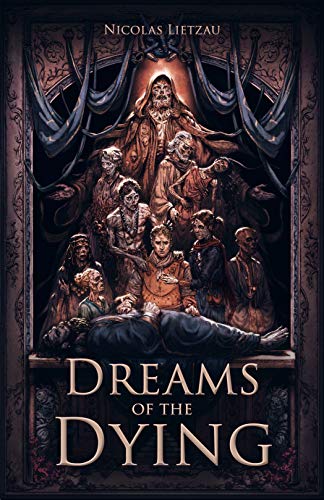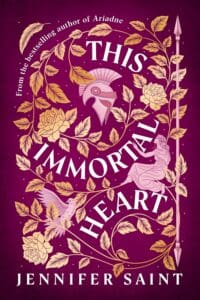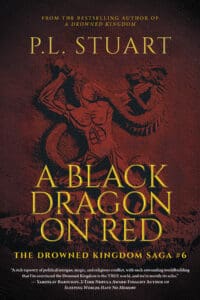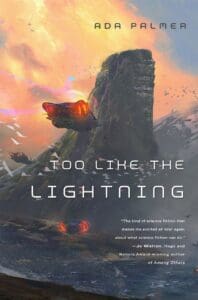
Synopsis
If your mind is the enemy, where do you run?
Years after a harrowing war experience, ex-mercenary Jespar Dal’Varek has taken to drifting. It’s a lonely existence, but, barring the occasional bout of melancholia, he has found the closest thing to peace a man like him deserves. Life is “all right.”
Or so he believes. Hoping to turn the page, Jespar accepts a mysterious invitation into the beautiful but dangerous archipelago of Kilay-and everything changes.
Plagued by explosive social tensions and terrorism, the tropical empire is edging ever closer to civil war. Kilay’s merchant king is the only person able to prevent this catastrophe, but he has fallen into a preternatural coma-and it’s Jespar’s task to figure out what or who caused it. As the investigation takes him across the archipelago and into the king’s nightmares, unexpected events not only tie Jespar’s own life to the mystery but also unearth inner demons he believed to be long exorcised.
Battling old trauma while fighting for his life, his sanity, and the fate of Kilay, the line between dream and reality blurs until only one question remains: If your mind is the enemy, where do you run?
Review
I’ve been following Dreams of the Dying around and meaning to get to it ever since word got around about the gorgeous hardcover edition. Something has to be said about the stellar production value, with all of the illustrations and extra content on offer if you shell out the extra cabbage to get hardcover. The story is based in the same world as the popular Skyrim mod, Enderal, but according to an author’s note in the front of the book, you won’t need any foreknowledge of the game in order to understand and enjoy it. Having never played the game, I found this to be mostly true.
“You’re not real,” Jespar whispered.
“Maybe not,” the Corpse replied. “But my judgment is.”
Although I was aware of its existence and significance, I never played the Enderal mod, but I can’t help but feel that if I had this would have been a much richer reading experience. The worldbuilding that Lietzau has managed to put into Dreams of the Dying is phenomenal and really calls back to that existing property. Even though he changed up some the lore and geography of the world for the book, Lietzau still had that fully realized world to pull from and it really shows. The scale of the histories and unique cultures on display in what is really just a small portion of the overall world, Vyn, is breathtaking. The MC is from the eponymous Enderal, but the story takes place in the Kilayan Archipelago, a series of islands inhabited by the native Polynesian-esque Kilayans and their colonizers. The magic system, dimensionism, is super cool as well, if not thoroughly explained. Basically, magic users are able to manipulate other dimensions which affect things in the real world (i.e. manipulating heat on the thermal dimension to create a flame in this one). When I say that the world-building is rich, I mean it; Lietzau even went as far as working with a linguist on creating a fully functioning Kilayan language.
There are two characters that really steal the show and that’s our two POVs, Jespar Dal’Varek and The Man. Jespar is our main POV that we’re with for the majority of the book, with interludes from the perspective of The Man sprinkled throughout. Jespar is a wonderfully realized character, with a rich backstory that is explored throughout Dreams of the Dying. He comes to us a broken man, suffering from depression and PTSD from several traumatic events in his life, things that he’s more than happy to pretend doesn’t exist. He’s witty, sarcastic, and self-deprecating to boot. While Jespar is decidedly a good guy, The Man is firmly situated in the love to hate ’em category. While I was never able to bring myself to root for The Man, I couldn’t get enough of his chapters.
The world is hard, a voice in his mind says. You need to be harder.
Monsters exist, another replies. And you’re one of them.
Unfortunately, the rest of the cast seemed to be there only to move the plot forward at times, which I know that’s exactly the reason they were written, but their characterisation was lacking and they never felt important. So much so that I never really cared what may happen to them. Generally, I am a very emotional person when it comes to consuming media; I cry at the smallest thing, whether it be a movie, book, or video game. Dreams of the Dying never quite got me to that point though, which is a shame because on the surface it had everything going for it, except for characters I could care about. For me, I think the problem stems from the fact that a good portion of the book is the characters debating some philosophical or moral quandary for pages on end. Which brings me to what is probably my biggest grievance with the book, Lietzau criminally tells instead of shows. I love that the story tackles big topics like mental health, income inequality, and colonialism, but I don’t want to be told how to feel about those things. The surface level, armchair philosophizing makes the pacing slow to a crawl and it happens several times! Additionally, the book is just far too long. Don’t get me wrong I love a big book, but main storyline wraps up a full 200 pages before the end of the book. Also (minor spoiler), Dreams of the Dying features a few of my most hated tropes, insta-love and a love triangle.
As you can probably tell by now, my feelings on Dreams of the Dying are really mixed. It seems like everything I liked about it also happened to be its greatest flaws. Take the worldbuilding, for instance. I loved how deep Lietzau went with the worldbuilding, giving us two unique cultures and fantastical creatures galore. On the other hand, the info dumps through which that information was delivered had me feeling like I was reading in-game lore codexes. As a side note, my favorite part of Dreams of the Dying happened to be the “dream” sequences. I really wish Lietzau had delved more into them as I feel like those were the most fully realized sections of the book where everything clicked but, while the horror elements were a focus in the marketing, those sections were a tiny part of the overall story. In the end, I will remember Dreams of the Dying as a book that could have been great, but just couldn’t bring all of its ingredients together to make something more than just palatable. It’s really frustrating because it’s a book I could see myself loving if it didn’t read so much like a first draft. That said, I think I will still be checking out the sequel when it releases because I think Lietzau has the potential to write something incredible.
“Yes. Tae ite nū’iwilo, tae hūnā ‘o. ‘You won’t find out if you give up.’ Because that is what it comes down to with melancholia and despair: just as other people lie when they tell you things always get better, your mind lies when it tells you that it doesn’t. The only way to know is to stay and find out … as hard as it might be.”







Fantastic review! I loved the book, but your criticisms are very valid. It’s true that Dreams of the Dying does feel like an early draft at times, especially in terms of pacing.
Thank you! Yeah, I think most of the storylines could have ran concurrently. Instead, it felt a lot like I was reading a quest log where the characters were going through and completing tasks in order instead of working on several things at once, if that makes sense. Like I said though, definitely looking forward to the sequel!